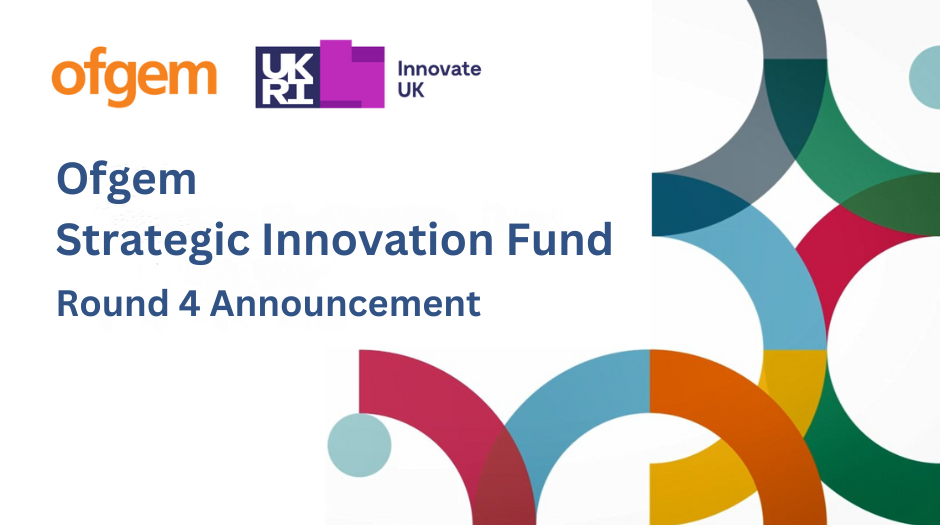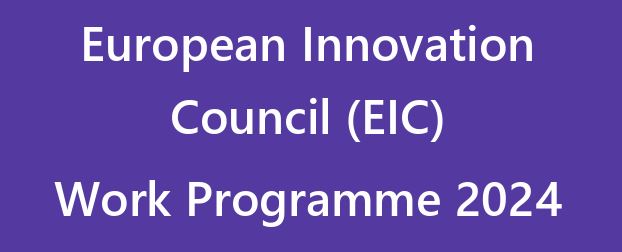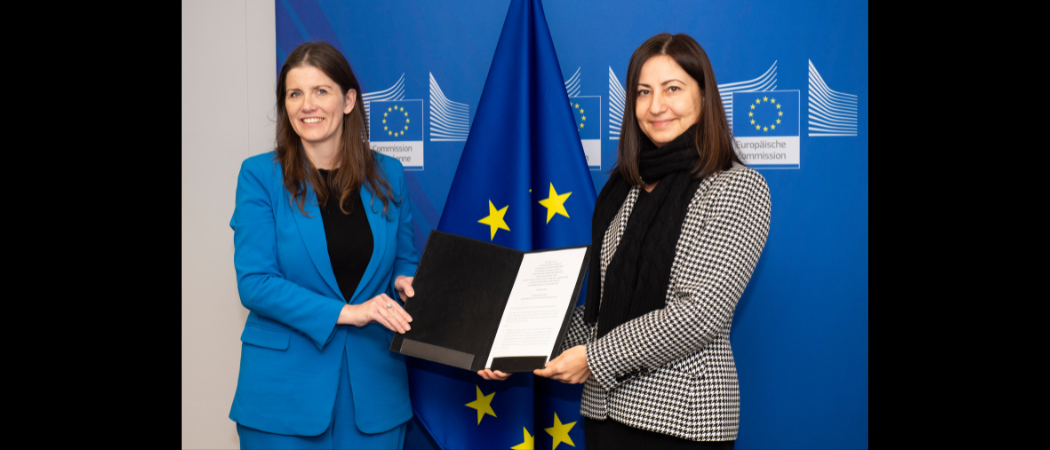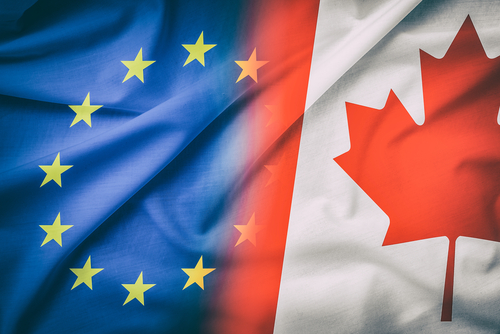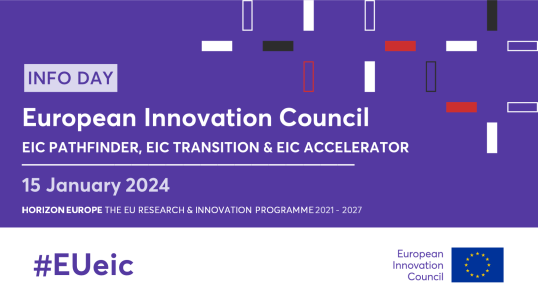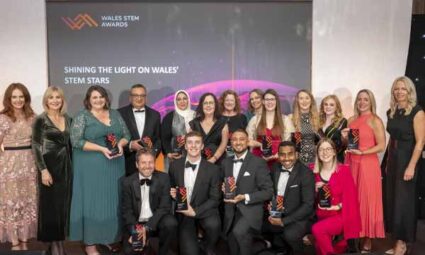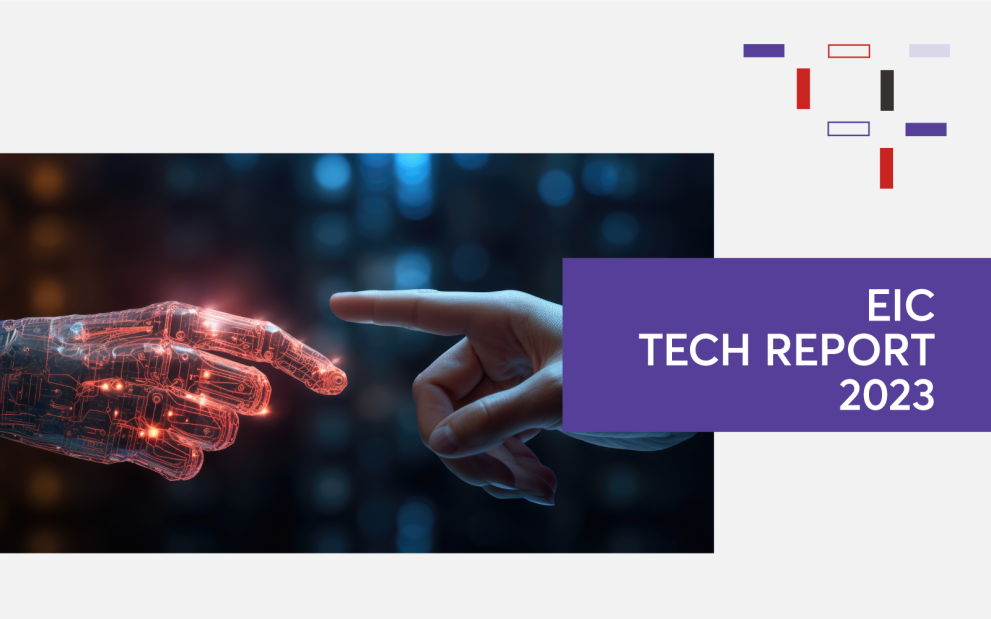Ofgem Strategic Innovation Fund (SIF) Round 4 Challenges
The Strategic Innovation Fund (SIF) is an Ofgem programme managed in partnership with Innovate UK. Its purpose is to support energy network innovation that will help achieve Net Zero rapidly and at lowest cost; deliver real net benefits to energy network users and consumers; and help the UK to become a 'Silicon Valley' of energy. The next round of SIF is being launched next week, with 4 new targeted innovation challenges.
Innovators will be invited to submit an Expression of Interest (EoI), outlining their idea to address the challenges. The EoI stage will give Innovate UK an opportunity to engage innovators in developing ideas before submission into the Call for Ideas; opening on Innovate UK’s Innovation Funding Service portal on 1st May 2024.
Successful ideas will have an opportunity to pitch their idea to the energy networks. Networks will then invite the most suitable pitches to partner with them to develop their idea further, with the aim of applying to the Discovery phase of Round 4.
Innovate UK will be hosting two introductory webinars to give a more in-depth view of the new challenges and explain next steps on how to get involved in this exciting new round of the SIF:
- Thursday 7 March @ 11:00 am
- Friday 15 March @ 9:00 am
You can register your attendance for the Round 4 Challenges Launch Webinars to ensure you are informed of the new challenges.
Eureka Programme Support & Partner Brokerage Event - 7th March 2024
Are you an innovative company based in the UK considering applying for an upcoming Eureka Network opportunity? The Eureka Programme Support & Partner Brokerage event aims to provide innovative UK companies with information on funding opportunities within the UK Eureka Network and support the building of international consortia through project idea pitching to broker partnerships.
The Eureka Network is an intergovernmental network connecting 47 countries through a joint platform for international cooperation in innovation. Organisations and companies applying to a Eureka programme can access funding and support from national and regional ministries or agencies for their international R&D projects.
Benefits of attending the event include:
- Finding Eureka programme partners to form strategic international collaborations for submission to the upcoming Eureka calls.
- Meeting experts in breakout rooms that are currently working on project ideas and pitch presentations. In addition, speaking with the UK Eureka Programme Management team who will be able to answer specific questions about applying for a Eureka opportunity.
Discover more about the upcoming Eureka funding opportunities including Eureka Eurostar's supporting SMEs and Eureka Clusters for supporting industry-led international communities focused on strategic technology areas including next-generation communications, low carbon energy, software innovation, advanced manufacturing & production and electronic components and systems development.
To register for the event, click here.
Pioneering the Future of Research Funding: Learn more about UKRI's Innovation and Research Caucus
In June 2023, UK Research and Innovation (UKRI) launched an ambitious move to revolutionise research and innovation funding by establishing the Innovation and Research Caucus (IRC). This initiative, backed by a £7 million investment, signifies UKRI's commitment to elevating the United Kingdom as a global leader in research excellence. The IRC aims to become a world-leading centre of excellence, shaping the future of research and innovation through evidence-based strategies and investments.
The IRC is conceptualised as a think tank and strategic unit within UKRI, dedicated to enhancing the effectiveness and impact of research and innovation funding. Its establishment responds to the growing need for a more evidence-driven approach in funding decisions, ensuring that investments are aligned with both national and global research priorities. The IRC will serve as a hub for gathering, analysing, and utilising robust evidence and insights, directly influencing UKRI's strategic direction over the next three years.
The creation of the IRC is also a response to the rapidly evolving research landscape, marked by emerging technologies and interdisciplinary challenges. By harnessing data and insights, the IRC aims to foster more informed and agile decision-making within UKRI, enhancing its ability to respond to new opportunities and challenges in the research domain.
The IRC's mission goes beyond merely optimising funding strategies. It is poised to play a crucial role in shaping the future of UK research and innovation, driving forward-thinking policies and initiatives. This includes identifying emerging research areas, fostering collaborations across disciplines, and ensuring that UK research remains at the cutting edge of global innovation.
The benefits of such an approach are wide ranging. For researchers and business, it promises more strategic and targeted funding opportunities, aligning with the latest trends and needs in various fields. For the wider society, it translates into research that can effectively address societal challenges, from healthcare breakthroughs to technological advancements.
Implementing such a visionary project is not without its challenges. The IRC has to navigate the complexities of the diverse research landscape, ensuring its recommendations are inclusive and representative of the entire research community. Looking ahead, the success of the IRC will depend on its ability to remain adaptive, inclusive, and forward-looking, setting a global standard in research and innovation funding strategy.
The establishment of the IRC marked a transformative step for UK research. By prioritising evidence-based strategies and foresight, UKRI is not just enhancing its funding mechanisms; it is positioning the UK as a visionary leader in global research and innovation, ready to tackle the challenges of tomorrow.
For more information about the IRC please visit: UKRI's Innovation & Research Caucus
UK's Scientific Renaissance: Re-joining European Research Council (ERC) Grants Post-Brexit
In a significant turn of events for the UK's scientific community, January 2024 marks the re-entry of UK-based scientists into the European Research Council (ERC) grant schemes. This re-engagement with one of Europe's most prestigious funding bodies symbolises a new chapter in UK-EU research collaboration, overcoming the post-Brexit hiatus that had temporarily sidelined UK researchers from these crucial funding opportunities.
The ERC grants, known for their competitive nature and substantial funding, are instrumental in advancing cutting-edge research. Post-Brexit, UK scientists faced uncertainty regarding their participation in these programs, leading to concerns about the potential isolation of UK science from broader European research initiatives. The reinstatement of UK eligibility for ERC grants comes as a relief and an opportunity for the scientific community. It ensures continued access to significant funding and collaborative opportunities with European counterparts, vital for maintaining the UK's position at the forefront of global research and innovation.
The re-inclusion in ERC grant schemes provides a much-needed boost to UK researchers, particularly in fostering international collaborations and enhancing the scope of their research. ERC grants are not just about funding; they are about building networks, sharing knowledge, and pushing the frontiers of scientific discovery. For early-career researchers, access to ERC funding is a gateway to establishing themselves in the competitive world of academia. For established scientists, it means the continuation and expansion of ambitious projects that require cross-border cooperation.
The move also signals a broader message of collaboration and unity in science, transcending political boundaries. It is a recognition that scientific progress thrives on diversity of thought and international cooperation. The reintegration is expected to yield significant advancements in various fields, contributing to both UK and European research agendas.
Despite the positive outlook, challenges remain. Navigating the post-Brexit landscape requires adaptation from both UK researchers and European partners. There will be logistical and regulatory hurdles to overcome, ensuring seamless integration and cooperation under the new frameworks. The future, however, looks promising. The re-entry into ERC grants is a stepping stone towards reinforcing the UK's commitment to global scientific collaboration, potentially paving the way for more integrated UK-EU research initiatives.
The UK's re-engagement with ERC grants is a pivotal moment for its scientific community. It not only reinstates critical funding avenues but also symbolizes a renewed commitment to international research collaboration, essential for addressing the complex, global challenges of our time.
European Innovation Council (EIC) 2024 Work Programme
Funding and Support in 2024
The European Innovation Council's (EIC) Work Programme 2024 marks a significant step forward in fostering research and innovation across Europe. With a comprehensive funding structure and support system, the programme is set to revolutionise the landscape of technological and scientific advancement. Worth over €1.2bn, the majority is dedicated to SMEs and start-ups to develop and scale up “deep tech” innovations in critical fields such as generative artificial intelligence (AI), space, critical raw materials, semiconductors and quantum technologies. You can download the full EIC 2024 Work Programme here.
The funding is provided across three main schemes.
• EIC Pathfinder: Allocating €256 million, the EIC Pathfinder scheme stands as a cornerstone of the 2024 programme. It aims at empowering multi-disciplinary research teams, encouraging them to engage in visionary research with the potential for groundbreaking technological advancements. Grants under this scheme can reach up to €4 million, providing substantial support for ambitious projects.
• EIC Transition: With a budget of €94 million, the EIC Transition scheme focuses on transforming research results into tangible innovation opportunities. This scheme is a natural progression from EIC Pathfinder projects, extending its reach to include European Research Council Proof of Concept projects and, for the first time, results from Horizon collaborative projects from Pillar 2/ societal challenges. Grants under this scheme can go up to €2.5 million.
• EIC Accelerator: The EIC Accelerator, with a massive €675 million budget, is tailored for start-ups and SMEs. It aims to aid in the development and scaling up of innovations with the potential to disrupt or create new markets. The scheme offers grants below €2.5 million and investments ranging from €0.5 to €15 million. Notably, €405 million of this is earmarked for investments managed by the EIC Fund, which also receives an additional €180 million for follow-on investments in companies selected under previous EIC Accelerator calls.
All projects supported by the EIC gain access to Business Acceleration Services, offering expert coaching, mentoring, and partnership opportunities.
Proactive Management and Structural Changes
The EIC adopts a proactive approach in managing funding. EIC Programme Managers play a crucial role, developing visions for innovation and technology breakthroughs, and guiding project portfolios to achieve these ambitious goals. The European Commission has also restructured the EIC Fund, transferring its shares to the European Investment Bank. This restructuring, alongside the EIC work programme’s measures, enhances the Fund's flexibility in managing its investment portfolio, which already includes over 500 of Europe's most promising start-ups and high-growth companies.
Simplification and Other Novelties
The EIC Board's recommendations have led to several simplifications and improvements to be implemented in the 2024 Work Programme:
• Introduction of lump sum funding in most EIC calls, eliminating financial reporting requirements for beneficiaries.
• Updated Intellectual Property rules to empower Technology Transfer Offices.
• Introduction of consensus meetings for EIC Accelerator applications to strengthen the evaluation process.
• Increased flexibility for the EIC Fund to adjust investments in response to company needs and market trends.
• Expansion of EIC Transition funding to include Horizon collaborative project results.
Investing in Strategic Technologies
A significant portion of the EIC funding (€420 million) is reserved for novel technologies and SMEs/Startups addressing challenges directly supporting the European Green Deal, REPowerEU, Chips Act, future AI Act, Net Zero Industry, and other EU policies, aligning with the New European Innovation Agenda. In line with the Commission’s strategy on economic security, applications in critical areas like AI and quantum technology will undergo screening for foreign ownership and investment safeguards by the EIC Fund.
Information Days
The EIC has scheduled two Information Days in January 2024. These events, conducted online, will provide potential applicants with insights into the new work programme and an overview of the three main funding schemes. The first day (15 January) is dedicated to the overall work programme, while the second day (16 January) focuses on the EIC Accelerator Challenges. You can read more about these info days here.
UK making moves to boost participation in Horizon Europe
After nearly three years of uncertainty, the UK and the EU have finally reached a pivotal agreement allowing the UK to Associate with Horizon Europe, the European Commission's (EC) Framework Programme for Research and Innovation. This development marks the end of a challenging period for UK-based researchers who faced restricted access to the scheme due to political disputes.
The formal agreement was finalised in Brussels on the 4th December, with UK secretary of state for science, innovation and technology Michelle Donelan present to witness the occasion. This Association, effective from 1st January 2024, involves the UK contributing approximately €2.43 billion annually to the EU budget for its participation. Donelan emphasised the mutual benefits of this association, highlighting the significant role the UK can play in research and development within Horizon Europe.
The absence of the UK in Horizon Europe previously led to notable restrictions. UK researchers were ineligible for European Research Council grants and faced limitations in coordinating industry collaborations, which form a large part of the program. Consequently, UK participation in the scheme was halved. To support its scientific community during this period, the UK provided equivalent funding domestically.
A key concern now is how quickly UK academics can regain their influential position in Horizon Europe, especially considering their prominent role in its predecessor, Horizon 2020. To facilitate the UKs return and help rebuild its standing in the European research and innovation community, Donelan announced the availability of pump priming grants up to £10,000 for researchers applying to Horizon Europe for the first time. These grants, aimed particularly at younger researchers and newcomers, are intended to help in submitting strong applications. The British Academy, among other bodies, will partner in distributing these grants.
Additionally, a comprehensive publicity campaign is planned to encourage researchers to apply and to ensure widespread awareness of the UK's association. This initiative was a topic of discussion between Donelan and research commissioner Iliana Ivanova during the Brussels meeting.
However, details regarding the total funding available for these grants are yet to be clarified. Donelan reassured that the specifics will be outlined in due course. As of now, there's no concrete data indicating an increase in Horizon applications following the September announcement. Despite this, Donelan noted the enthusiasm and eagerness among researchers, scientists, and university vice-chancellors to participate in Horizon Europe, with many already preparing their bids.
With the UK's association, like other non-EU members, it won't have voting rights in committees determining Horizon Europe's work programmes and grant distributions. However, Donelan stressed that the UK will still have a significant voice in shaping the programme.
The UK's re-entry into Horizon Europe, alongside Canada and New Zealand, leaves Switzerland, South Korea, and Japan as the remaining countries negotiating association with the EC. Ivanova expressed her delight in welcoming the UK back to the Horizon Europe family, delivering on her commitment to integrating non-EU countries into Horizon Europe.
Canada to Join Horizon Europe
On the 24th November 2023, at the Canada-EU Summit European Commission (EC) President Ursula von der Leyen and Canadian Prime Minister Justin Trudeau announced the conclusion of negotiations for Canada's association to Pillar II of Horizon Europe, the EU's key funding programme for research and innovation. It marks a significant milestone to foster mutual collaboration in research and innovation.
Ursula von der Leyen, EC President, said: “We warmly welcome Canada into the Horizon Europe family, and we eagerly anticipate the innovative breakthroughs and transformative discoveries that will emerge from our joint projects. Together, we will chart new frontiers, push the boundaries of knowledge, and build a more resilient and prosperous world for generations to come.”
The signing of the Association Agreement is expected to take place in 2024, pending the completion of all necessary validations on both sides. Once signed, researchers and organisations in Canada will be able to receive funding under Pillar II of the Horizon Europe. Pillar II is the largest collaborative part of the programme that is primarily focused on shared global challenges: climate, energy, digital economy and health, with a budget of €53.5 billion.
Association to Horizon Europe is the deepest form of collaboration offered by the EU in research and innovation. It will enable researchers and organisations in Canada to collaborate in calls under Pillar II of the programme on equal terms with entities from the EU Member States. They will also have access to networks of researchers in the EU and 18 other countries associated to Horizon Europe as of 2024.
Background
Formal relations between the EU and Canada in the field of research and innovation date back to 1996, with the signature of the Agreement on cooperation in scientific and technological cooperation. That Agreement has provided the general framework for cooperation and acted as a forum for regular discussions about research priorities and areas of common interest.
Horizon Europe is the biggest EU's research and innovation programme ever with an EU budget of €95.5 billion for the period 2021-2027, complemented by the financial contributions from associated countries. It is open to the world, which means that participants from all over the world can participate in nearly all calls. Entities from associated countries have additional opportunities in collaborative projects and are treated on par with the entities of EU Member States regarding the access to funds.
European Innovation Council Info Days announced for 15th and 16th January 2024
On the 15th January 2024, prospective applicants for the European Innovation Council (EIC) interested in the upcoming opportunities under the Work Programme 2024 are warmly invited to join this full-day online Info Day to learn about the available funding and learn about successes achieved under the previous work programmes.
High-level speakers from the EIC, SMEs Executive Agency (EISMEA), the Directorate-General for Research and Innovation (DG RTD) of the European Commission, and the European Investment Bank (EIB) will provide an overview about three main funding schemes provided by EIC:
-EIC Pathfinder: for advanced research on breakthrough or game-changing technologies;
-EIC Transition: for transforming research results into innovation opportunities;
-EIC Accelerator: for individual companies to develop and scale up breakthrough innovations with high risk and high impact.
Dedicated sessions will present the wide range of services (access to coaches, mentors, access to global partners & innovation ecosystem) offered to all EIC-funded projects and companies by the Business Acceleration Services (BAS) and the Lump Sums as a novelty from 2024 relevant for all schemes.
The event will conclude with an overview of the free of charge support that prospective applicants can get from their EIC National Contact Points (Access2EIC network) and their local Enterprise Europe Network (EEN2EIC network) advisers.
The following day (16th January), there will be a half-day Info Day dedicated to the EIC Accelerator Challenges under the Work Programme 2024 and reply to questions received from participants.
You can stream the event on the 15th January here: https://webcast.ec.europa.eu/european-innovation-council-info-day-work-programme-2024-01-15
You can stream the event on the 16th January here: https://webcast.ec.europa.eu/european-innovation-council-info-session-accelerator-challenges-work-programme-2024-01-16
Winners of the 2023 Wales STEM Awards Announced
The Wales STEM Awards 2023 were held on the 13th October and RedKnight was delighted be one of the event sponsors. The annual ceremony shines a spotlight on the organisations and individuals making a difference to the STEM (Science, Technology, Engineering, Maths) agenda in Wales.
The awards celebrate those leading the sector in Wales, those businesses creating an impact on the Welsh economy, those addressing the STEM diversity gap and skills shortage, and those inspiring and raising aspirations of the next generation.
The ceremony saw finalists from across all parts of Wales compete for 14 awards in a variety of categories, ranging from STEM Start-Up of the Year to Innovation in STEM.
Winners of the 2023 Wales STEM Awards:
Innovation in STEM Award – Afon Technology
STEM Company of the Year (over 50 employees) – Thales
STEM Company of the Year (under 50 employees) – CanSense Ltd
STEM Educational Programme of the Year (Private Sector) – M-SParc
STEM Educational Programme of the Year (Public Sector) – ExperiMENTAL Science
STEM Educational Programme of the Year (Not-For-Profit Sector) – Techniquest
STEM Ambassador of the Year – Sian Richardson, Ipsen Biopharm Ltd
STEM Woman of the Year – Michelle Slee, DVLA and Dr Mabrouka Abuhmida, University of South Wales
STEM Rising Star of the Year – Morgan Phillips, CNECT Wales
STEM Team of the Year – Engineering Education Scheme Wales Ltd
STEM Sustainability Award – Genesis Biosciences
STEM Research Project of the Year – University of South Wales
STEM Start-up of the Year – Lunia 3D
Highly commended in the 2023 Wales STEM Awards:
STEM Company of the Year (under 50 employees): Techniquest
STEM Educational Programme of the Year (Private Sector): Admiral Insurance UK
STEM Ambassador of the Year: Richard Hebblewhite, Games Talent Wales
STEM Start Up of the Year: Thompson STEM Engagement
STEM Rising Star of the Year: James Vincent, Catsci Ltd
The European Innovation Council's (EIC) Tech Report 2023
At the forefront of scientific and technological advancements, the European Innovation Council (EIC) is a beacon of innovation in Europe. The EIC's commitment to pushing the boundaries of innovation is aptly demonstrated by the release of the EIC Tech Report 2023. This annual report shines a spotlight on the novel technologies and innovations that have been submitted to the EIC under Horizon Europe, a flagship EU research and innovation program.
What makes the EIC Tech Report 2023 stand out is its emphasis on early-stage research projects. These projects are funded following an exhaustive, independent expert review, ensuring that only the most promising and groundbreaking ideas get the support they need to thrive. The report not only celebrates the successful projects but also sheds light on areas of technology that have garnered high-quality proposals but are yet to receive funding from the EIC.
The report's scope is extensive, encompassing a wide array of technology domains. From digital technologies to industry and space, cleantech, and health, it covers a diverse range of topics, reflecting the breadth and depth of innovation in Europe.
One of the most intriguing aspects of the EIC Tech Report 2023 is its role in shaping the future of the EIC portfolio. The analysis and insights shared in the report are invaluable in guiding future explorations. By mapping internal EIC data to global trends based on patents, publications, funding, and investments, the report provides a roadmap for the EIC's future initiatives.
In essence, the EIC Tech Report 2023 is a testament to the EIC's unwavering commitment to fostering innovation in Europe. It not only showcases the remarkable projects that have received support but also serves as a compass for the EIC's journey ahead. With its dedication to nurturing early-stage research and exploring emerging technology domains, the EIC continues to be a driving force in the ever-evolving landscape of innovation.
As we eagerly anticipate the next wave of groundbreaking innovations, the EIC Tech Report 2023 serves as a reminder of the remarkable potential that lies within the European innovation ecosystem. It's a call to all innovators, researchers, and entrepreneurs to continue pushing the boundaries of what's possible and to contribute to the growing legacy of innovation in Europe. With the EIC at the helm, the future looks promising for those seeking to make a difference in the world of science and technology.
You can read the full report here.

